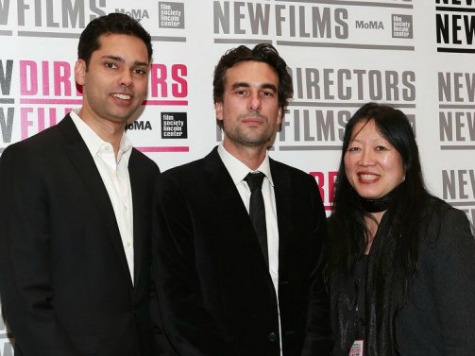Joining a cacophonous debate over gun violence in the United States, a new film probes behind the headlines of a 2002 shooting spree that terrorized the area around the nation’s capital.
New York-based French director Alexandre Moors’s film “Blue Caprice” premiered at the Sundance festival and was chosen to open the New Directors New Films festival that ends in Brooklyn this Sunday.
It explores what became known as the Beltway Sniper attacks in October 2002, when John Allen Muhammad, a former US soldier who joined the black-Muslim movement Nation of Islam, paired with 17-year-old Lee Boyd Malvo to randomly kill 10 people and wound three others.
In a unique twist to the murders, the two used a blue Chevrolet Caprice that was adapted to include a secret sniper’s position in the back. The rifle could be fired from a small aperture, while keeping the shooter hidden.
That three-week horror spree was far from the only mass killings in the United States over recent years. Just last year, a decade after the Washington killings, America reeled at the massacre of 20 children and six staff at an elementary school in Newtown, Connecticut.
As a result, the film has been launched at a time of top-level political struggle over whether more restrictions are needed on gun ownership — or, as Moors suggests, whether violence has deeper roots.
Moors, 40, calls his film “very noir, a requiem on where the world is going.”
Rather than the killings themselves and the familiar aftermath, Moors concentrates on the toxic relationship between John Allen Muhammad and his young acolyte.
Moors was not in the United States at the time of the Beltway Sniper, but followed news reports. It was two years ago when he came across an article about the incident and decided to imagine the path taken by the pair before becoming serial killers.
The process of independent filmmaking, the adopted New Yorker says, shows a better side of the United States.
Although he started by self-financing with just $100,000, “investors appeared little by little, almost without us searching for them.”
When Isaiah Washington, an actor best known for his role as Dr Preston Burke in the TV medical drama “Grey’s Anatomy,” signed on, “things started to snowball.” Ultimately, the budget rose to $1 million.

COMMENTS
Please let us know if you're having issues with commenting.